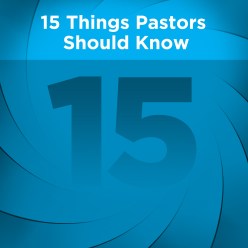As hard as it may be to believe, embezzlement is an all-too-common occurrence in churches. The risk of embezzlement can be substantially reduced by adopting a strong system of internal control. Internal control is an accounting term that refers to policies and procedures adopted by churches to safeguard its assets and promote the accuracy of its financial records.
What policies and procedures has your church adopted to ensure that cash receipts are properly recorded and deposited? What policies and procedures has your church enacted to ensure only those cash disbursements that are properly authorized are made? These are the kinds of questions that are addressed by a church’s system of internal control.
Key point. The most important point to emphasize when it comes to internal control is “division of responsibilities.” The more that tasks and responsibilities are shared or divided, the lower the risk of embezzlement.
Key point. Many churches refuse to implement basic principles of internal control out of a fear of “offending” persons who may feel that they are being suspected of misconduct. The issue here is not one of hurt feelings, but accountability. The church, more than any other institution in society, should set the standard for financial accountability. After all, its programs and activities are rooted in religion, and it is funded with donations from persons who rightfully assume that their contributions are being used for religious purposes. The church has a high responsibility to promote financial accountability.
Church leaders can reduce the risk of embezzlement by reviewing common examples of poor internal controls, such as one person counts church offerings.
Additional reading
For more on internal controls and embezzlement, see the following:
- Pastor, Church & Law (on this website or in book format)
- Church Finance: The Church Leader’s Guide to Financial Operations (chapter 7)
- “Embezzlement Without Internal Controls”
- “Church Leader Caught in Embezzlement Scheme Goes to Prison”
- “Internal Control Weaknesses: “I Know Someone Who . . .”
- “Using Mobile Pay Devices (Like Square) to Accept Payments”
- “Financial Integrity Starts with the Right Team”
- “Protect Your Church’s Financial Health”
- “Keeping Your Church’s Electronic Giving Safe”
Return to “15 Things Richard Hammar Wants Pastors to Know” to see the full list and choose an article of interest or that fits a particular need.

